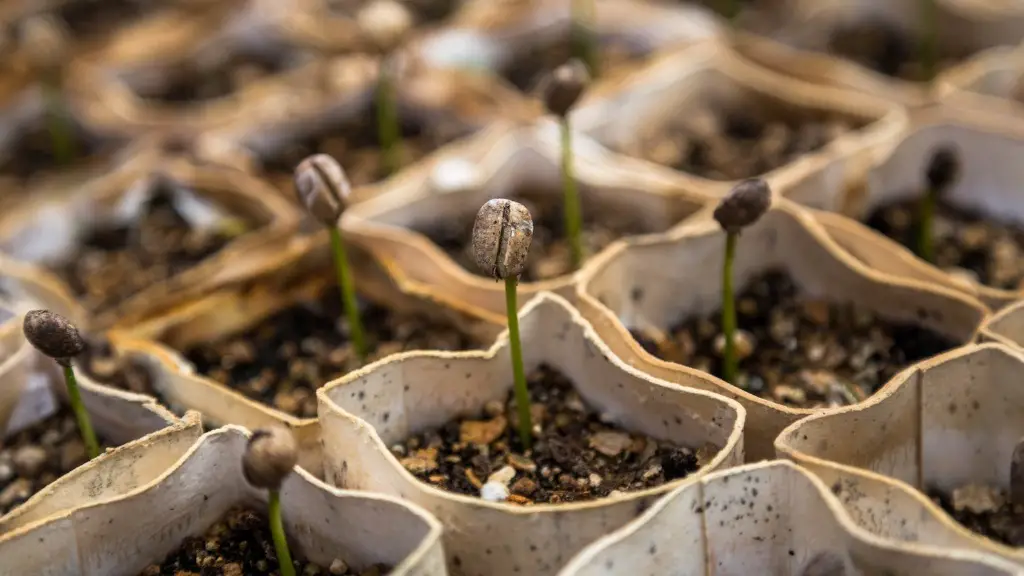Coffee in the Morning: Its Positive Effects
Having a cup of coffee in the morning has been a common practice among many people. The energizing effects and the stimulating aroma make it an appealing, convenient way to start the day. With the rise of modern science and knowledge in the medical field, there is more and more evidence that having coffee in the morning not only gives you physical benefits, but also has a positive effect on your mental and emotional state.
Studies have shown that having a cup of coffee in the morning can help boost alertness and cognitive function. By increasing the activity of certain neurotransmitters in the brain, coffee can help improve focus, concentration, and decision making abilities. Coffee also contains compounds that can help reduce inflammation and fatigue, making it a great pick-me-up in the morning.
Coffee can also provide emotional benefits. Not only does it give you a jolt of energy, it can also have a positive impact on your mood. Studies have shown that caffeine can have an antidepressant effect, helping to reduce feelings of sadness and stress. The smell of freshly brewed coffee can also induce a feeling of calm, providing a sense of comfort and stability.
Despite its many positive benefits, it is important to be aware of the possible risks of drinking too much coffee. Caffeine can be addictive and excessive consumption can lead to insomnia, irritability, and restlessness. It is best to moderate one’s intake of coffee and make sure to drink it in moderation. Moreover, it is important to ensure that the coffee you are drinking is organic and free from artificial flavors, additives, and preservatives.
Coffee and Health
In addition to its mental and emotional effects, coffee has also been found to have numerous positive health benefits. By reducing inflammation and fatigue, coffee can help people feel more energized and reduce their risk of developing certain chronic illnesses. Coffee has also been shown to contain pharmacologically active compounds that can act as antioxidants, helping to protect the body against oxidative damage. Furthermore, coffee can help protect against certain types of cancer, heart disease, and Type 2 diabetes.
For those who suffer from digestive issues, coffee can also help reduce symptoms of indigestion and stomach pain. Studies have found that the anti-inflammatory compounds in coffee can help reduce the symptoms of IBS, Crohn’s disease, and other digestive disorders. Coffee can also help increase the production of bile, which can help reduce indigestion and other gastrointestinal issues.
Finally, coffee can help improve dental health. By reducing the risk of tooth decay and cavities, coffee can help give your teeth a much needed break from the sugary drinks and snacks that can lead to tooth erosion. Additionally, coffee can reduce the risk of gingivitis and periodontal disease, which can lead to severe gum inflammation.
Conclusion
In conclusion, having coffee in the morning has many positive benefits. From boosting alertness and cognitive function to providing emotional and physical benefits, coffee can help make the morning more enjoyable and energizing. However, making sure to moderate one’s intake of coffee is important to ensure that one does not suffer any of the negative side effects of caffeine overconsumption. For those looking to add a little something to their morning routine, coffee can be a great choice.
Coffee is a Natural Source of Caffeine
One of the primary active ingredients in coffee is caffeine, which is a natural stimulant. When consumed in small amounts, caffeine can have beneficial effects on alertness and can help people stay focused and productive throughout the day. Caffeine’s effects on the brain are due to its ability to bind to certain receptors, which can help stimulate nerve cells and increase the release of certain neurotransmitters.
Caffeine can have a positive impact on physical performance as well. By increasing adrenaline levels, caffeine can help increase strength, speed, and power and can enhance one’s overall physical performance. Additionally, caffeine can help reduce pain and muscle soreness, making it a great pick-me-up for athletes. However, it is important to note that while caffeine can help improve physical performance, it should not be used as a performance-enhancing drug and should be consumed in moderation.
Caffeine also has numerous health benefits, such as reducing the risk of certain types of cancer, heart disease, and Type 2 diabetes. Moreover, it can help protect against oxidative damage and can help reduce inflammation and fatigue. It can also help improve digestion, reduce the risk of cavities and tooth erosion, and can help protect against certain dental issues.
Caffeine, however, can have some negative effects when consumed in large amounts. Excessive consumption of caffeine can lead to insomnia, dehydration, and restlessness. Although a cup or two of coffee can have numerous positive benefits, it is important to be aware of the possible risks of consuming too much caffeine.
Coffee and Sleep
Many people worry that coffee will negatively affect their sleep, but the evidence suggests that this is not necessarily the case. While caffeine is a stimulant, it can actually help you fall asleep if consumed in the right amounts. Studies have found that having a small amount of caffeine in the afternoon or evening can help people fall asleep faster and stay asleep longer.
However, it is important to be mindful of when you consume caffeine. If you consume it too late in the day, the caffeine can stay in your system and cause you to be too awake to fall asleep. Therefore, it is important to pay attention to the timing of when you consume caffeine, as well as the dosage. Consuming too much caffeine can interfere with your sleep, even if it is consumed earlier in the day.
Coffee can also have a positive impact on your dreams. Studies have found that having a cup of coffee in the afternoon can make dreams more vivid and can help people remember their dreams better. Therefore, if you are looking for a way to boost your creative juices, a cup of coffee in the afternoon may just be the answer.
Overall, having a cup of coffee in the morning or afternoon can have many positive benefits. From improving mental and emotional health to protecting against certain types of cancer and reducing the risk of cavities, coffee can be a great source of both energy and health benefits. However, it is important to be mindful of the possible risks of consuming too much caffeine, such as insomnia and restlessness, and ensure that one consumes coffee in moderation.
The Best Time to Have Coffee
When it comes to having coffee, timing can make a big difference. Consuming it at the right time can make all the difference in how you feel throughout the day. For example, having a cup of coffee first thing in the morning can help give your brain a jolt of energy and can help you feel more alert and productive throughout the day.
On the other hand, having coffee later in the day can have a different effect. Caffeine can stay in your system for up to six hours, so having it late in the day may make you too awake to fall asleep. Moreover, if you consume it too late in the day, the caffeine can interfere with your ability to wind down and relax in the evening. Therefore, it is important to pay attention to the timing of when you have coffee.
Furthermore, having coffee throughout the day can help keep your energy levels even and can reduce the risk of feeling fatigued or overwhelmed. Spacing out your coffee consumption throughout the day can help you maintain your energy levels and can keep you feeling energized and productive. Moreover, if you suffer from a caffeine addiction, spacing out your coffee consumption can help prevent withdrawal symptoms.
Overall, having a cup of coffee in the morning or afternoon can have numerous positive benefits. From improving mental and emotional health to helping reduce inflammation and fatigue, coffee can be a great source of both energy and health benefits. However, it is important to pay attention to the timing of when you consume coffee, as well as the dosage, to ensure that you are not consuming too much and that you are getting the most out of your cup of Joe.





